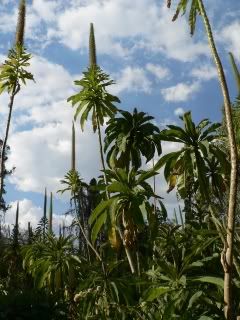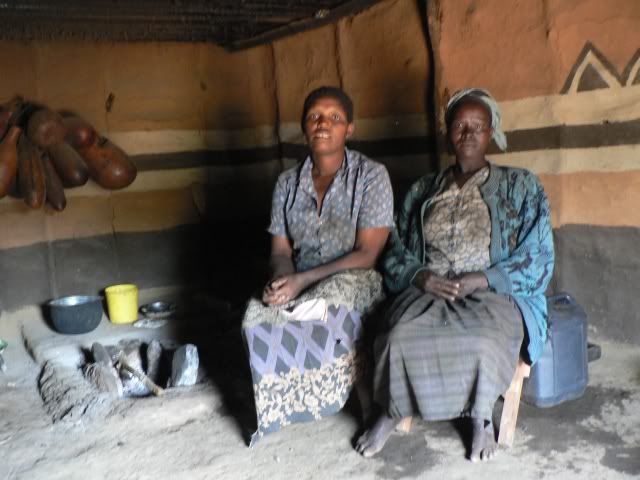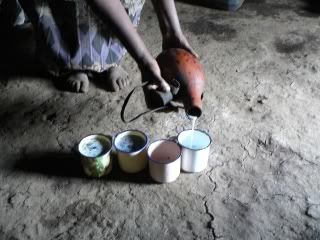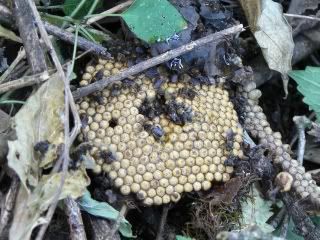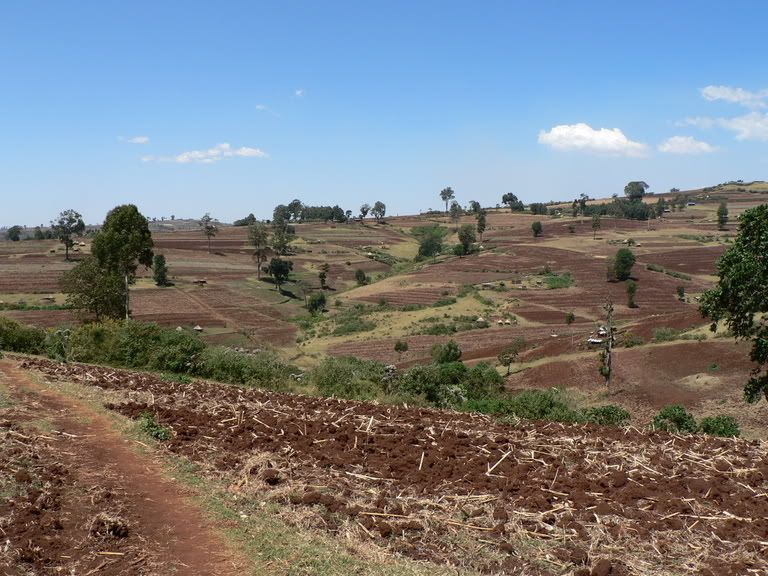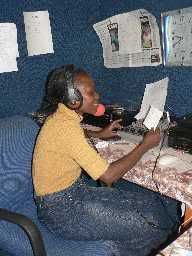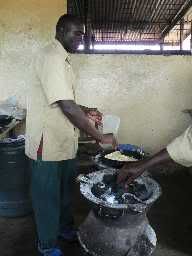Mt Elgon x 2
I'm back in civilisation... Back with electricity, back at the radio station computer, back with late nights. I had been getting amazing amounts of sleep up at the campus in Mt. Elgon where I stayed. Most of the time I was alone (there was an askari/guard outside who, along with the double- bolted doors and barred windows, kept me feeling quite safe) so I went to bed at absurdly early times for me- 9 or 10pm. Doing everything by candle or lamplight makes you to really appreciate using the daylight hours to their fullest. I woke up around 7am and went out to get my milk from the freshly- milked cow... warm milk... wowee. A treat. I wonder what my colleagues at the Canadian Food Inspection Agency think of that... Anyways, I never ever got sick in any way, though I think I have shed a few pounds after walking 10+km each day up and down countless steep hills and valleys spreading the good news about how to not get infected with HIV in primary and secondary schools and at community organisations. Who knew this would be one of my niche markets? Thank goodness I had learned a lot about it because of being involved in the African AIDS Angels group in Victoria & doing presentations with that. Also thank goodness Canadians aren't quite as nervous talking about the number one way people get AIDS as Kenyans in this area are. More on this later.
Today is just a short post to say hi- I'm mentally exhausted from spending a whole day with one of my colleagues and his wife travelling to Mt. Elgon national park on the other side of Mt Elgon district from where I was working. This man is an expert Sabaot conversationalist- that is, he is an expert at talking all around a subject, in many circles... never completely reaching his goal or making a point- which leads me to ask painfully obvious questions just to prompt him to come up with some conclusion in his thoughts before the cows start coming home (litterally...). I'm also exhausted physically because we walked quite a bit to get to the park, then walked all around inside it (with the aid of two heavily armed Kenya Wildlife Service guards in case a rogue buffalo made himself too obvious) until we providentially met up with a group of Americans who had a vehicle- yippee!!! We spent the rest of the time standing in the back of their truck... we even got a ride back to Kitale with them, which meant I missed out on an opportunity to sleep in a homestead... but at this stage I don't mind too much.
More tomorrow? I hope? And photos if I can manage.
